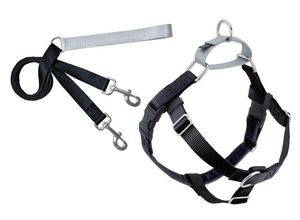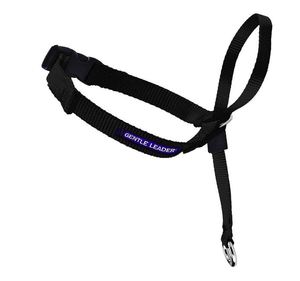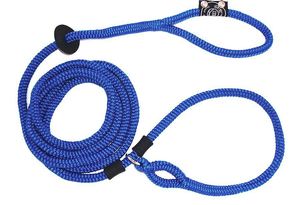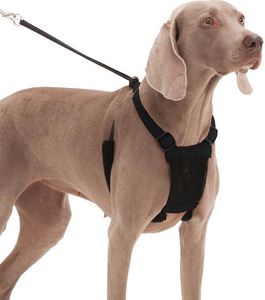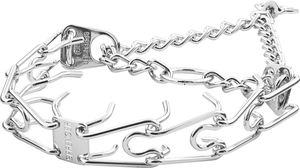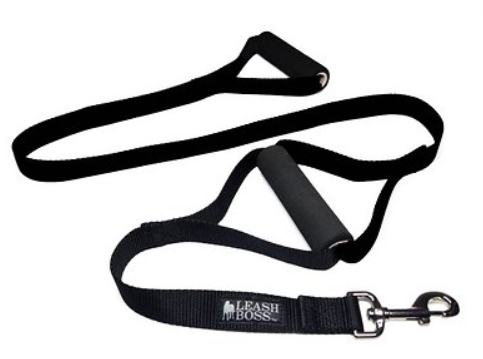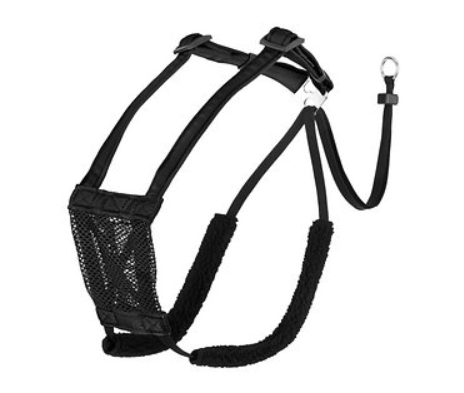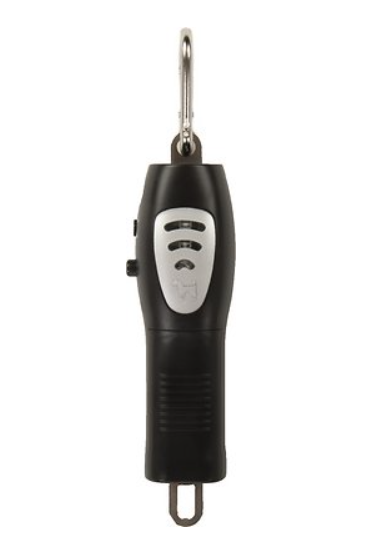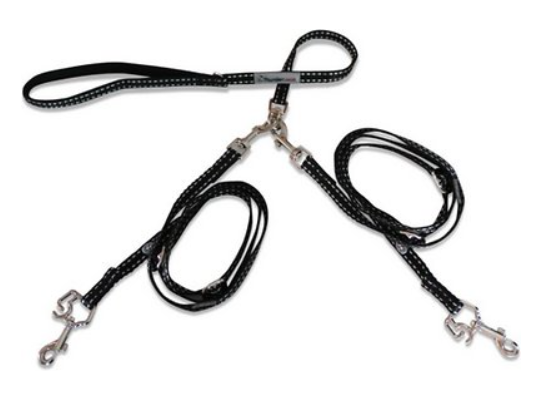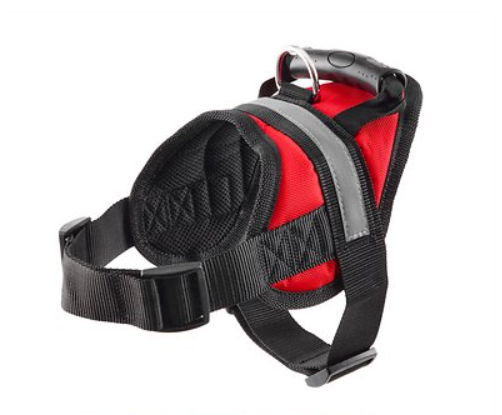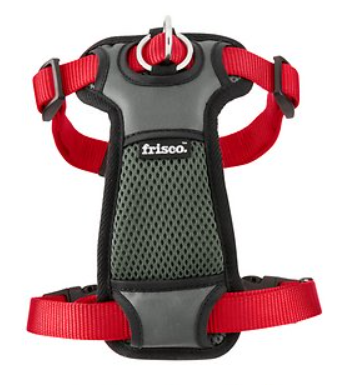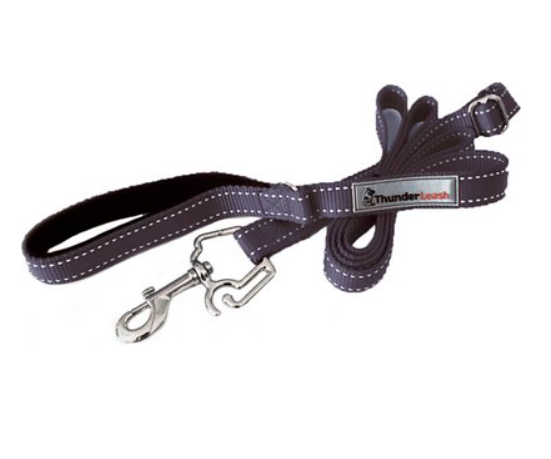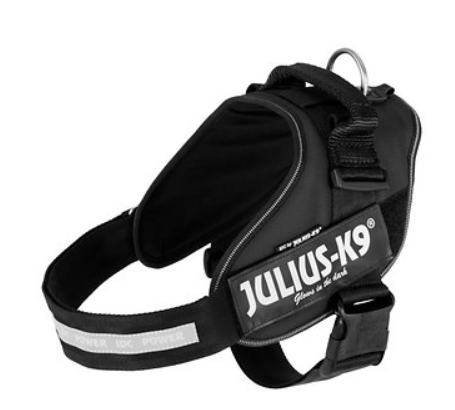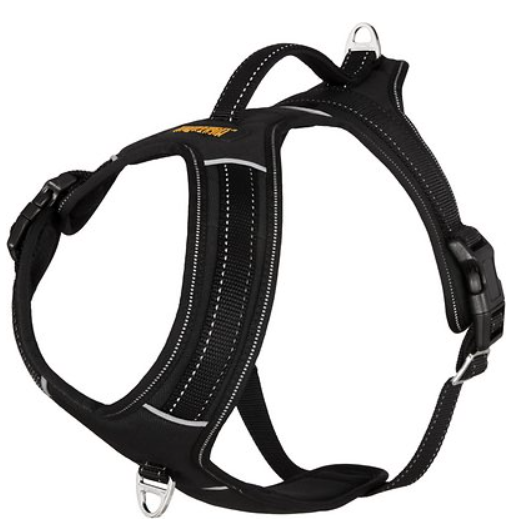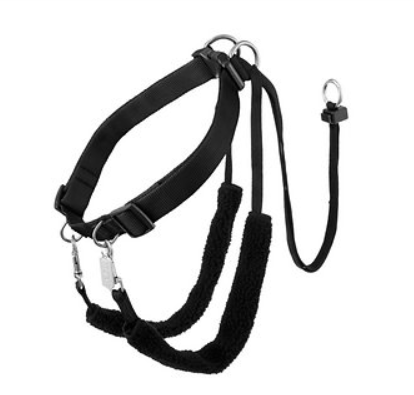Best Leash for Dogs that Pull: 5 Great Options to Rein in an Over-Eager Dog
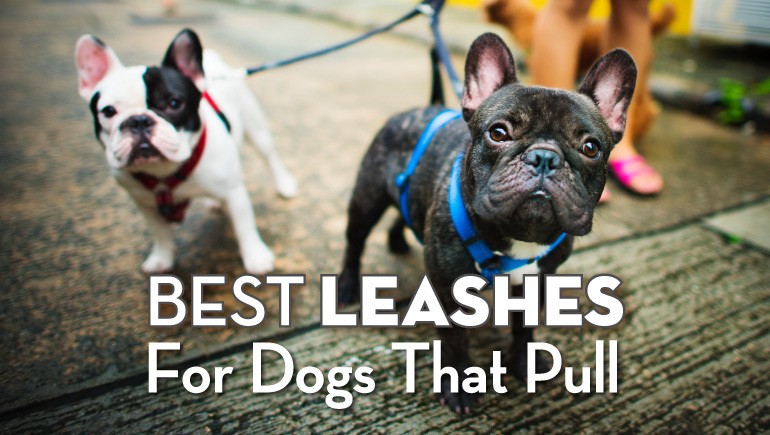
So you're out on a walk with your pet...
Are you walking the dog, or is the dog walking you?
There are several reasons you might be looking for the best leash for dogs that pull. I mean, everyone knows that dogs are incredibly excitable creatures, right?
But the thing is...
This can become problematic when you’re trying to take your dog for a walk. Especially since you’re supposed to be the one walking the dog, not letting him walk you. Making sure your dog doesn’t pull you around is doubly important because of the dangers pulling can bring.
For this reason there are a multitude of leashes specially made dogs that like to pull their owners around.
Product Comparison: Top No-Pull Leashes
**Below, you'll find our more detailed reviews, but you can also click the links above to see current prices or read customer reviews on Chewy.
This is a relatively basic no-pull harness leash. It secures around the dog’s front legs and provides good control over your dog. It comes in a dozen colors so you can customize it to your tastes easily.
The harness itself is made of strong nylon and stainless steel which means it is durable enough for larger breeds.
The harness is designed with your dog’s comfort in mind and features a velvet lining on the inside of its straps to reduce the possibility for chafing.
The harness comes in sizes ranging from extra small to double extra-large and has four adjustable points to allow you to customize the fit to your needs. If you are looking for a colorful, customizable, and effective leash for your dog, this is a great choice.
This is a very basic and inexpensive head collar designed to provide you with complete control over your dog’s head.
The collar and leash are available in six different sizes to fit a wide variety of breeds. The leash is fully adjustable to provide further customizability.
It also avoids muzzling your dog, instead allowing her to drink, bark, play fetch, or anything else it needs its mouth for.
The straps are made of powerful nylon to ensure durability and longevity. It can be used with dogs as young as eight weeks old and can be worn for up to eighteen hours a day making it ideal for use on longer outings.
The leash comes with fitting instructions and a bonus training guide and DVD.
If you’re looking for a flexible head collar that can be worn for longer periods of time, this is a good option for you.
This leash operate similar to a harness leash by securing around your dog’s chest, applying pressure when he begins to pull.
This leash has fewer clasps and buckles than a normal harness leash making it well suited to a longer haired breed like a Shih Tzu or a Bearded Collie.
The leash is less customizable than others, offering only two sizes and five colors.
The leash can be a bit loose so some dogs may be able to wiggle their way out of it, so make sure to keep a watchful eye out for that.
It is also shorter than some of the other leashes, making it less suitable for situations where you want your pet to have a bit more leeway.
This inexpensive mesh harness leash is designed with larger breeds of dog in mind.
The nylon is designed to stretch as your dog moves and the mesh allows it to breathe, maximizing his comfort.
The metal parts are nickel plated to reduce wear and tear on the harness. This harness and leash are less customizable than others, but can be tightened to ensure proper pressure is applied when your dog pulls.
The pressure from the leash immediately deter dogs from pulling and provides you with control if you need to urge your dog in the right direction.
We wanted to provide at least one prong collar in the list. However, please, please, please remember: these collars should only be used under professional supervision.
This is a popular brand of prong collars that is commonly used for dogs that have extreme problems with pulling.
This collar pinches but avoids placing pressure on your dog’s neck, making it safer than a choke collar. It is made of steel and is fully customizable to your dog’s neck size.
While this type of leash can significantly reduce pulling it is important to ensure that you use this type of collar as a last resort and under professional guidance.
Using this as a first step in preventing your dog from pull can reduce the overall effectiveness of training by teaching your dog what not to do rather than what to do.
Types of Anti-Pull Leashes
No-Pull Harness Leashes
One of the most common style of leash that is designed to reduce pulling is the no-pull harness leash. These leashes are designed like a vest, intended to be worn around the front legs and secured to the dog’s stomach.
This serves two purposes: reducing the neck pressure and choking that is caused leashes that attach to a dog’s collar and providing more control over the dog’s movement.
These leashes come with a number of downsides that somewhat offset their benefits. Some dogs find harnesses to be uncomfortable, making it difficult to get them on in the first place. The harness can get dirty easily because of how it wraps around the dog’s front legs.
No-pull harness leashes can also be ineffective with larger breeds of dogs, making this type of leash suitable if you have a smaller breed of dog.
Head Collar Leashes
Head collars are another common way to train your dog not to pull. This type of collar attaches directly to the dog’s head which provides significant control over the dog. These collars a very difficult to slip out of and are suitable for dogs of any size.
If your dog is a larger breed and pulls with a lot of strength, the design of this type of collar will pull his head upwards and back towards you, providing clear indication to stop pulling.
Many dogs find head collars to be uncomfortable at first so it can take a while for your dog to get used to wearing this type of collar, which can make training a bit more difficult.
The fact that you have strong control over your pet’s head means you can control your dog easily, but it is possible that strong pullers could strain their necks with this type of leash. For this reason it is recommended that you only use this type of collar with a shorter leash.
Choke and Prong Collars
Some people resort to devices known as aversive collars to train their dog not to pull them. One type of aversive collar, the choke collar operates by constricting the dog’s neck when he pulls. This will cause your dog to pull less, but is ineffective for training for a number of reasons:
- Choke collars can be dangerous and injure your dog.
- Teaching your dog what not to do is not the same as teaching your dog what to do.
- Teaching your dog using pain can cause it to associate other factors common to walks with the pain.
For these reasons choke collars should not be used without professional oversight and only after other options have been exhausted.
Prong collars are similar to choke collars in that they are a drastic measure that should only be used with professional oversight. These operate by pinching the dog’s neck when they begin to pull. While less dangerous than choke collars, prong collars are designed for temporary rather than long term use.
How to Train Your Dog to Not Pull
Once you have the proper equipment to help you control your dog on your walks it is time to begin training your dog to not pull.
Effectively training your dog involves encouragement and positive reinforcement so make sure to bring some small treats when you go for a walk. Keep your walks short and keep the pace quick.
Taking shorter walks more often helps reinforce the training and keeping the pace up reduces the chance for your dog to find something else that is more interesting than you. Also make sure to keep a tight grip on your dog’s leash and to keep the leash short to increase the control you have over your pet.
If your dog is excitable and you find it difficult to get its leash on before you leave the house it is important to train your dog to settle down.
If your pet starts jumping around when you grab the leash, wait until he calms down before putting the leash on. If he begins jumping around again continue waiting until he is calm enough to leash and bring outside.
If you are concerned about your dog’s reaction to other dogs while on walks the easiest way to train for this is to bring her for a walk along with another dog that you know and trust. This can be a good way to get your dog used to encountering other dogs and letting her make new friends.
More No-Pull Dog Harness
- Brand Name - Leashboss
- Material - Nylon
- Size - 5 feet
- Feature - Engineered for medium and large breed dogs and assembled in the USA, Leashboss puts you in charge of your pulling pup
- Brand Name - Sporn
- Material - Nylon
- Size - 16 to 24 inches(Neck)
- Feature - Features a veterinarian approved, patented system that "gives" with your dog's natural movements
- Brand Name - Sherpa
- Material - Polyester
- Size - 33.5 x 4.75 x 0.5 inches
- Feature - Training lead that emits ultrasonic sounds to discourage your pup from pulling on the leash
- Brand Name - ThunderLeash
- Material - Nylon
- Size - 3 feet
- Feature - Adjustable, Padded Handle, Traffic Handle, Training, Waterproof
- Brand Name - HDP
- Material - Polyester, Nylon
- Size - M-XXL
- Feature - No choke harness is a great solution for hard pullers, as well as elderly dogs
- Brand Name - Frisco
- Material - Nylon, Polyester
- Size - 22 to 34 inches(chest)
- Feature - Training, Step In, Leash / Harness, Dual Clip
- Brand Name - ThunderLeash
- Material - Nylon
- Size - 6 feet
- Feature - Adjustable, Leash / Harness, Padded Handle, Traffic Handle, Training, Waterproof
- Brand Name - Julius-K9
- Material - Nylon
- Size - 28 to 37.5 inches(chest)
- Feature - Reflective
- Brand Name - Mighty Paw
- Material - Nylon
- Size - 22.5 to 26.5 inches(chest)
- Feature - Dual Clip, Reflective, Training, Waterproof
- Brand Name - Sporn
- Material - Nylon
- Size - XL
- Feature - No Pull, Back Clip
SAVE TO YOUR MEMOS!
Images credits: Amazon.com , Chewy.com, Photo Stocks.


